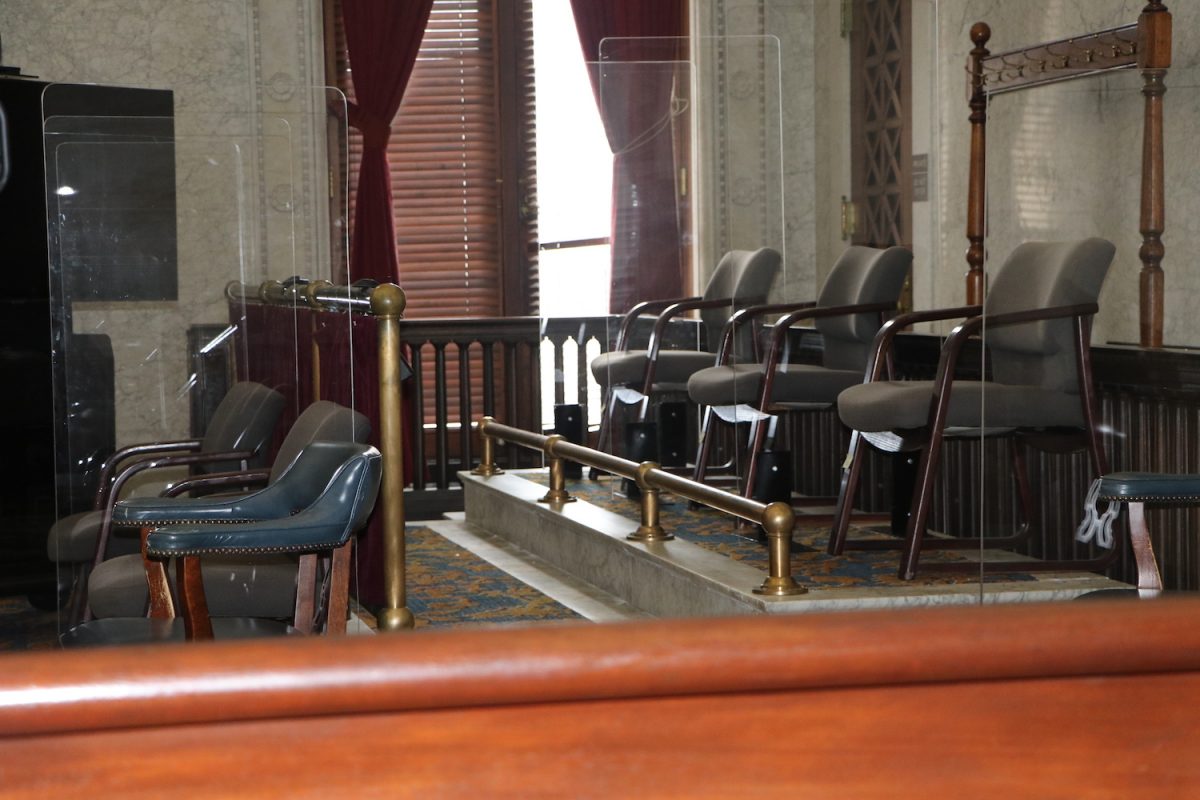
Thank you for reading Baltimore Witness. Help us continue our mission into 2024.
Donate NowBy
Shiloh Eschbach [former]
- November 4, 2023
Attempted Murder
|
Court
|
Daily Stories
|
Homicides
|
Juveniles
|
Non-Fatal Shooting
|
Shooting
|
Suspects
|
Victims
|
On Oct. 31, the defense attorney for a Baltimore man accused of the homicide of a 13-year-old girl asked the jury not to let her “absolutely tragic death” fuel their emotions when finding a verdict.
Tavon Battle, 36, is charged with first-degree murder, attempted first-degree murder, two counts of firearm use in a felony violent crime, four counts of firearm possession with a felony conviction and having a handgun on his person in connection with the death of Kelsey Washington and the non-fatal shooting of a second victim.
Jason Silverstein represented Battle on Tuesday in Baltimore City Circuit Court before Judge Charles H. Dorsey III.
The prosecution provided an outline of the incident, which occurred on Nov. 7, 2022. A suspect riding a bicycle approached a parked car in which one of the victims was sitting at a gas station on the 1400 block of East Fayette Street. The suspect looked inside the car and began to shoot at that victim, but also shot over the car, allegedly hitting Kelsey in the head.
The prosecution claimed that the ground was “littered” with shell casings from the shooting. She told the court that the shooting was captured on video, and the footage of the suspect walking into a library was a “crystal clear image” of Battle.
In his opening statement, Silverstein told the court that the inability of the prosecution to produce eyewitnesses, despite the fact that there were dozens of people at the location at the time of the shooting, was a good indication that his client wasn’t guilty.
Silverstein also addressed several pieces of evidence that were submitted by the prosecution. He mentioned that although Battle’s DNA was found on the bicycle associated with the crime, there was also DNA evidence from others found. Battle was the only person identified because he was the only person who was compared to the DNA.
Silverstein explained that a witness will be called during the trial who will say that the same gun was used three months earlier in another shooting, which Battle couldn’t have conceivably committed.
Additionally, Silverstein argued that Battle would have left fingerprints on the car and at the library, however, none of Battle’s fingerprints were recovered from either location.
Before the trial began, Battle rejected the prosecution’s plea offer of life for first-degree murder, life for attempted first-degree murder and 20 years, the first five of which without the possibility of parole, for each of two counts of firearm use in a felony violent crime, all to run concurrently.
Follow this case